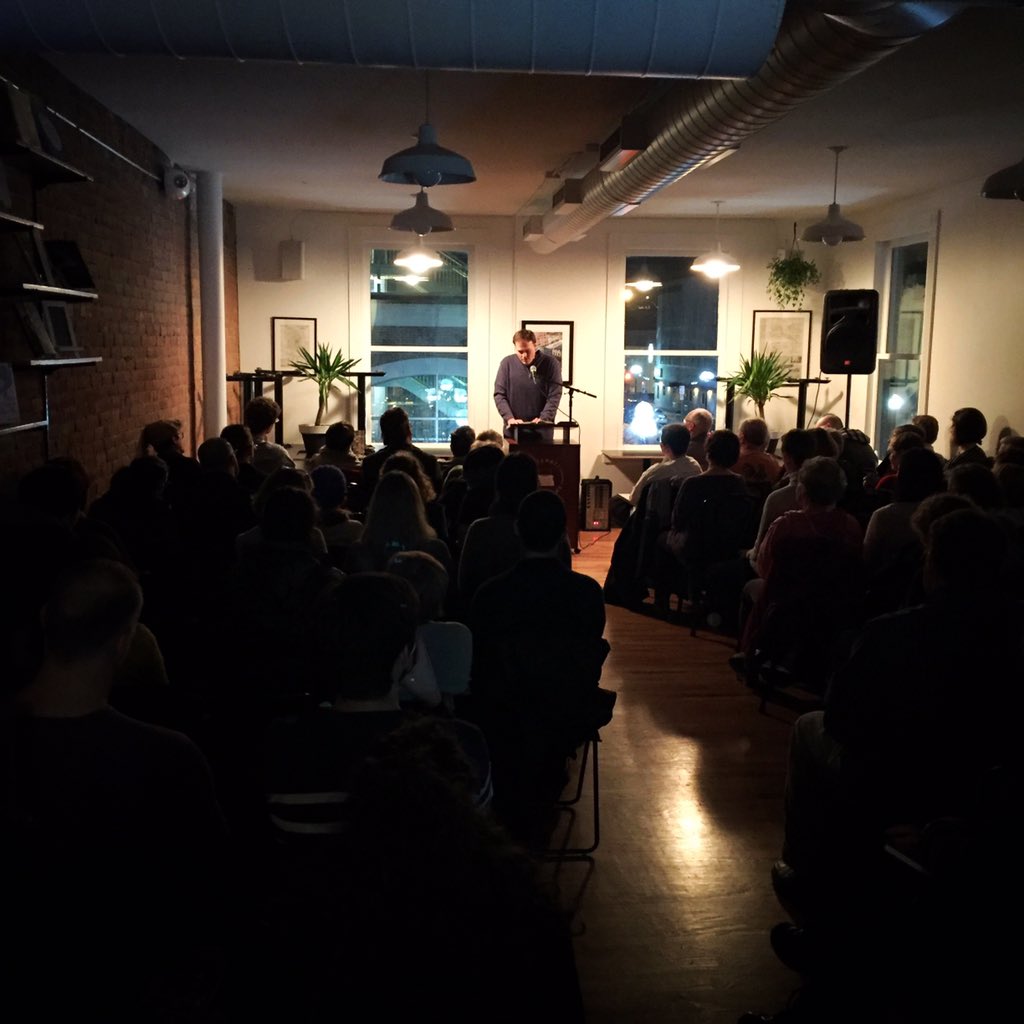Café Shapiro was amazing, and the talent of all of the featured writers was very impressive.
The first writer was Cailean Robinson, a freshman.
After her, Molly Reitman read some of her fiction. Her piece was titled All The Time I’m Wasting, and one of my favorite quotes from her selection was as follows: “My stories are safe, and not worth repeating.” That line really resonated with me because it raised the question of – what stories are worth repeating, and how should I go about making them?
Third, the sophomore Lenny Shirase read a few of his poems. His poems in particular used strong metaphors, linking physical doors with emotional mindsets. He also touched upon the idea of having two homes, which is something I’m familiar with after moving to Ann Arbor. He described the “sun lighting up the ocean” like the “desert.” It was a very vivid image and highlighted the most beautiful qualities of what I’m assuming are his two homes.
Later, Ashley Bishel, a junior, read her short narrative, September. It was a realistic take on a love story. It began with “the kind of perfect that sounds much better on paper” and ended as you might expect. She placed emphasis on the importance of music, which I appreciated as a musician myself.
After Ashley, Katerina read a few of her poems. The language and imagery within them was striking. Take, for example, the line: “autumn leaves set soul ablaze.” When she was reading, she used many pauses for emphasis and her tone was almost melodic.
Later, Tori Essex read her fiction. Her narrative was titled, Chicago Bound. It discussed the painfulness of saying goodbye, among other things. My favorite line from her selection was: “masking sadness with cheerful goodbyes.”
Laura Dzubay read next, a freshman with a major in English. Her poetry was astounding and her stage presence was incredibly comfortable. She read five poems, one entitled Elegy for David Bowie. She had a ton of awesome quotes within her pieces, but a couple of my favorites were: “singing the wind” and “I miss being hungry.” The world through Laura’s poetry is a glorious one.

The final author was a senior named Gavin Gao. He read a few of his poems, and they were unique in the sense that they were almost anecdotal. He also had a few wonderful quotes within his writing, my favorite of which being: “eyelashes quivering in prisms.”
Café Shapiro is an amazing event, and all of the featured authors will be put in print later on this semester. I’m very happy I got to hear some of their writing!





